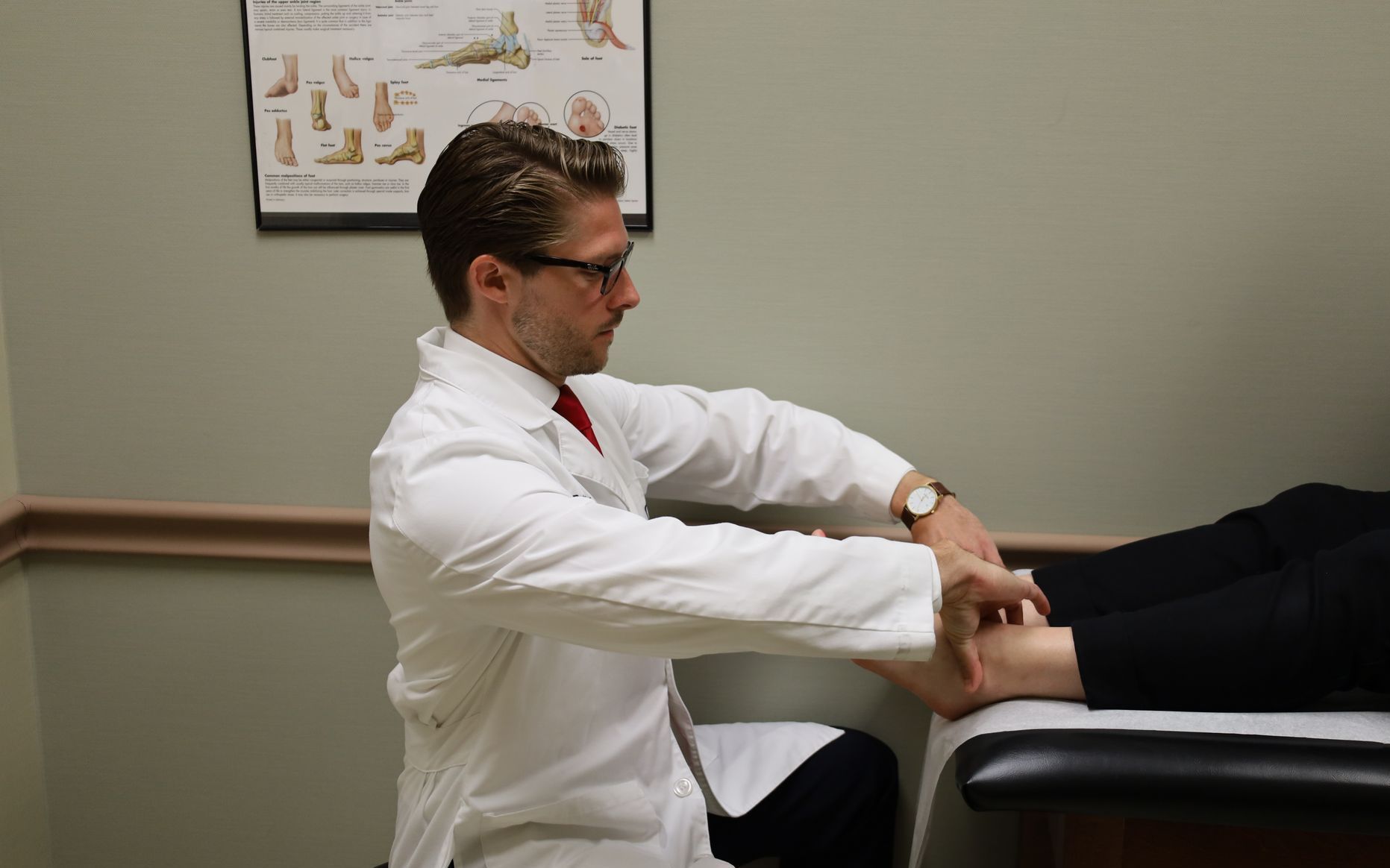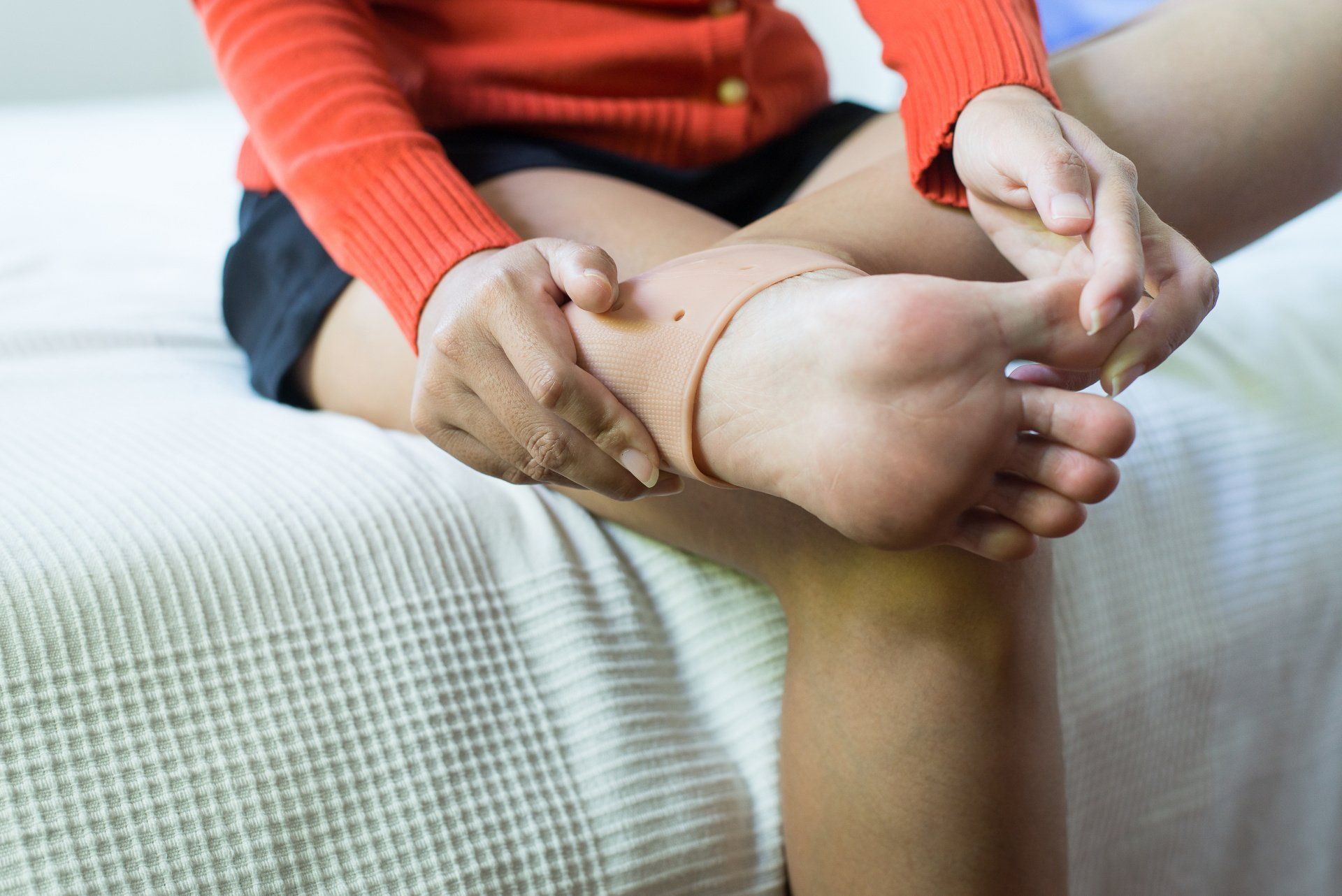Plantar Fasciitis Treatment in Baton Rouge
RELATED PAGES
Plantar Fasciitis Overview
Plantar fasciitis is the most common source of bottom of the foot pain with over 2 million patients seeking treatment each year. The condition is the result of inflammation of the plantar fascia tendon that runs along the bottom of the foot, from heel to toe. The purpose of this tendon is to absorb shock and support the arch. However, when inflamed, it can become the source of great discomfort.
Plantar Fasciitis Causes
Plantar fasciitis is typically the result of repetitive strain or overstretching of the plantar fascia tendon. This may occur from excessive amounts of time spent standing, walking, or running. It may also come from wearing poorly fitted shoes or jumping and landing on hard surfaces. Additional factors that may contribute to a patient’s risk for developing plantar fasciitis include:
- Being between the ages of 40 and 60
- Being overweight or obese
- Having high arches or flatfeet
Plantar Fasciitis Symptoms
Being the most common source of pain at the bottom of the foot, plantar fasciitis is fairly easy to identify. Typical symptoms include:
- Pain located at the bottom of the foot in the heel or arch
- Pain associated with the first steps taken when getting out of bed in the morning or after sitting for extended periods of time. Also known as “first step pain,” this pain tends to improve with movement.
- Pain that is worse after physical activity rather than during
Plantar Fasciitis Treatment Options
- Rest – As plantar fasciitis is often the result of overuse, an extended period of rest may be needed to allow inflammation to resolve. This means less time spent on the feet and a reduction in activities such as running.
- Ice – To help reduce inflammation and improve pain, patients are often instructed to apply ice regularly. A common and effective technique is to roll the foot over a frozen water bottle for about 20 minutes, several times a day.
- Anti-inflammatory Drugs – Nonsteroidal anti-inflammatory drugs (NSAIDs) such as ibuprofen and naproxen can help ease both pain and inflammation throughout the recovery process. Another treatment option for plantar fasciitis are prescribed injections of cortisone, a powerful anti-inflammatory steroid.
- Physical Therapy – Orthopedic physical therapy is a useful tool for plantar fasciitis patients, as therapists can provide specific exercises and stretching techniques to loosen the tendon and bring relief.
- Night Splints – The hallmark “first step” pain of plantar fasciitis is often the result of foot position during sleep. Rather than allowing the foot to relax and point down as it normally would, a night splint keeps the foot flexed and continues to stretch the plantar fascia throughout the night.
- Shoe Selection & Orthotics – Key to keeping the plantar fascia healthy is shoe selection that provides both a proper fit and adequate support. This may mean visiting a specialty shoe store for expert recommendations or receiving custom orthotics from a podiatrist.
- Surgery – When all else fails, patients may require an endoscopic plantar fasciotomy (EPF). This brief, outpatient procedure involves cutting a portion of the plantar fascia in order to lengthen and release it. The procedure is highly effective with minimal risk of complication and a recovery time of about 10 weeks.
Plantar Fasciitis Specialists in Baton Rouge
RELATED READING
Plantar Fasciitis Blogs
MOVE MORE, HURT LESS.
QUICK LINKS
SIGN UP FOR OUR NEWSLETTER:
7301 Hennessy Blvd.
Suite 200
Baton Rouge, LA 70808
tel: (225) 766-0050
fax: (225) 766-1499
4463 LA 1 South
Suite A
Brusly, LA 70719
tel: (225) 766-0050
fax:
(225) 766-1499
19065 Dr. John Lambert Dr.
Suite 2100
Hammond, LA 70403
tel: (225) 766-0050
fax: (225) 766-1499
16158 Airline Hwy.
Prairieville, LA 70769
tel: (225) 766-0050
fax: (225) 766-1499
5000 O'Donovan Blvd.
Suite 306
Walker, LA 70785
tel: (225) 766-0050
fax: (225) 766-1499
Bone & Joint Clinic of Baton Rouge, Inc. complies with applicable Federal civil rights laws and does not discriminate on the basis of race, color, national origin, age, disability or sex.
Click to view our notice.
Bone & Joint Clinic of Baton Rouge | All Rights Reserved.






